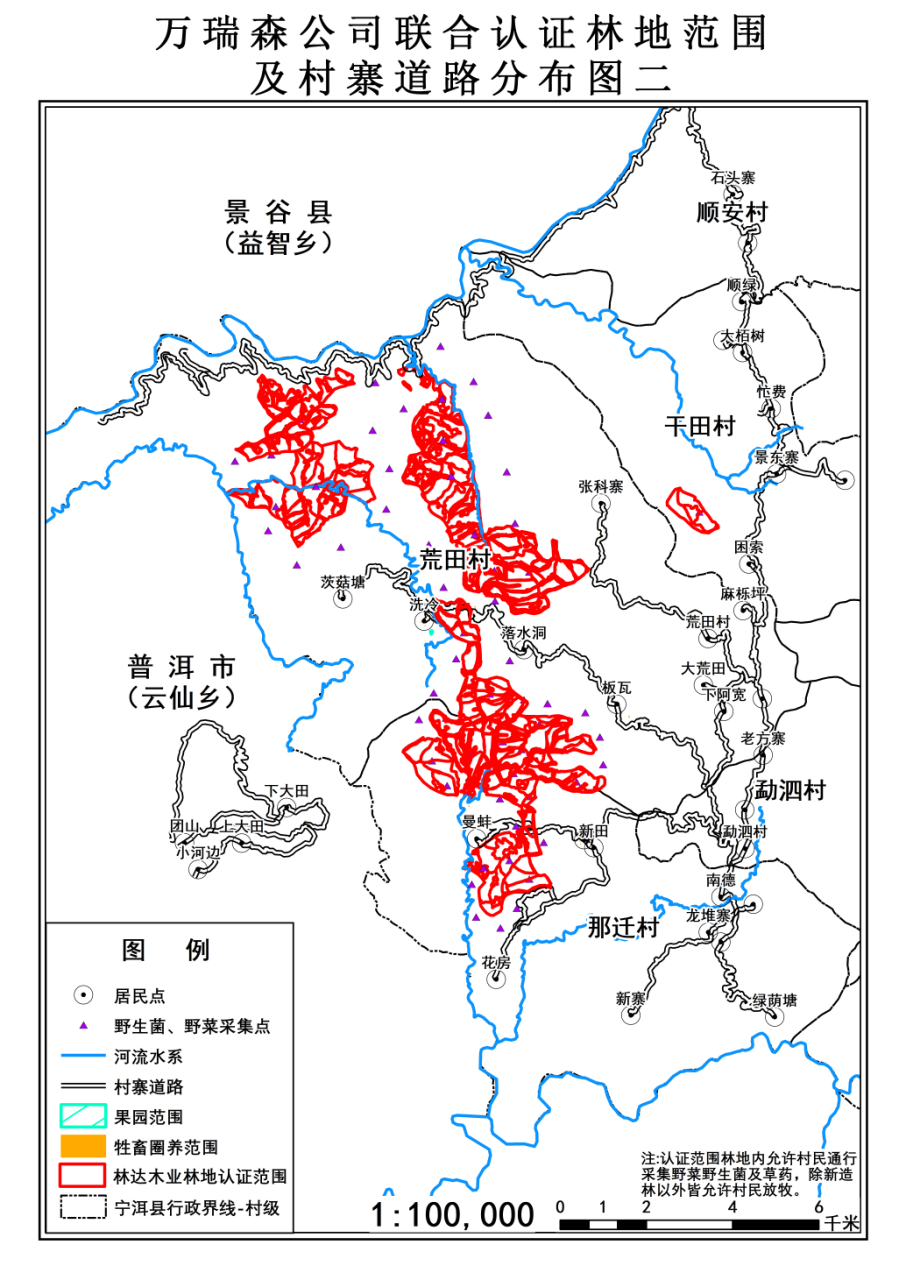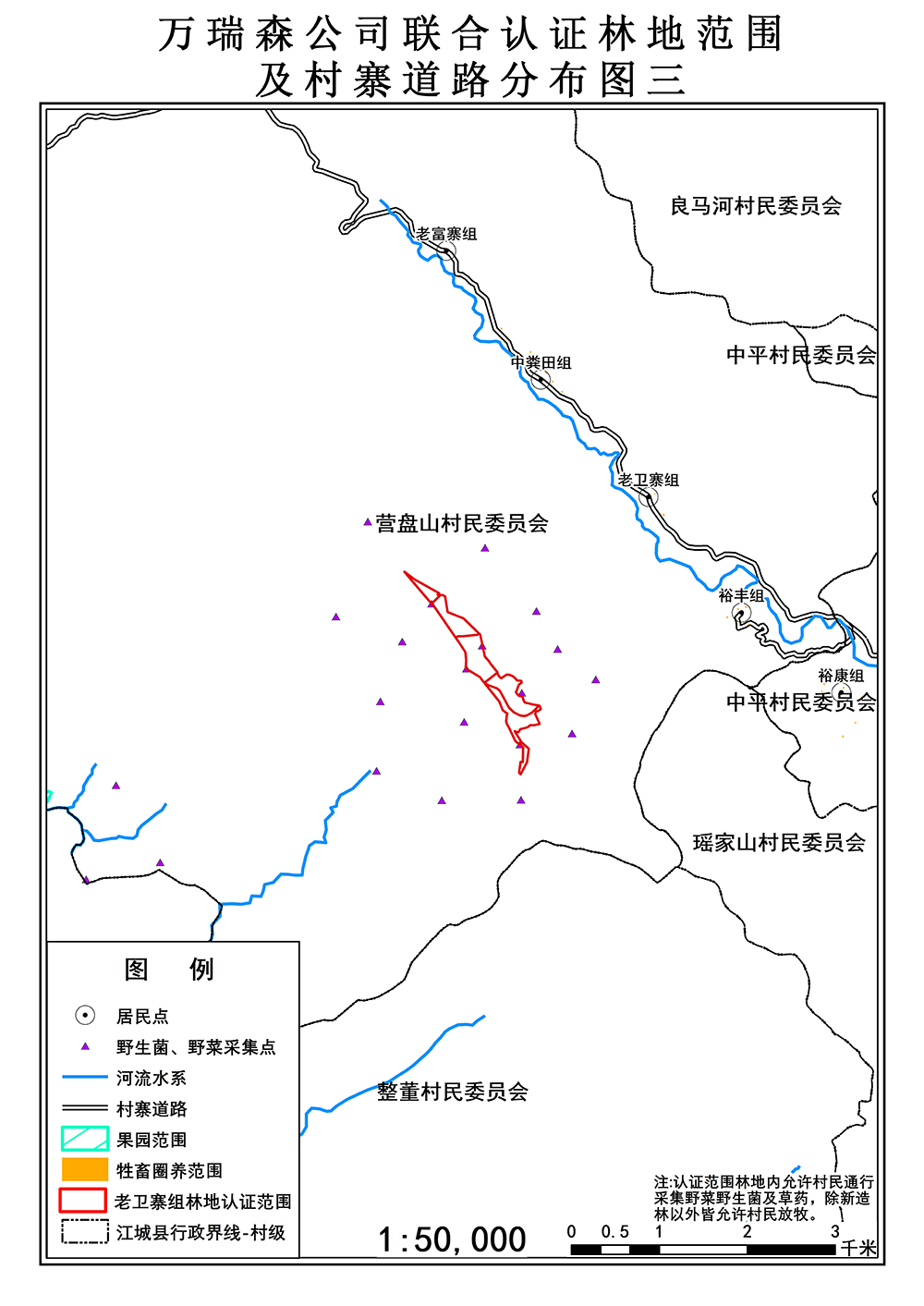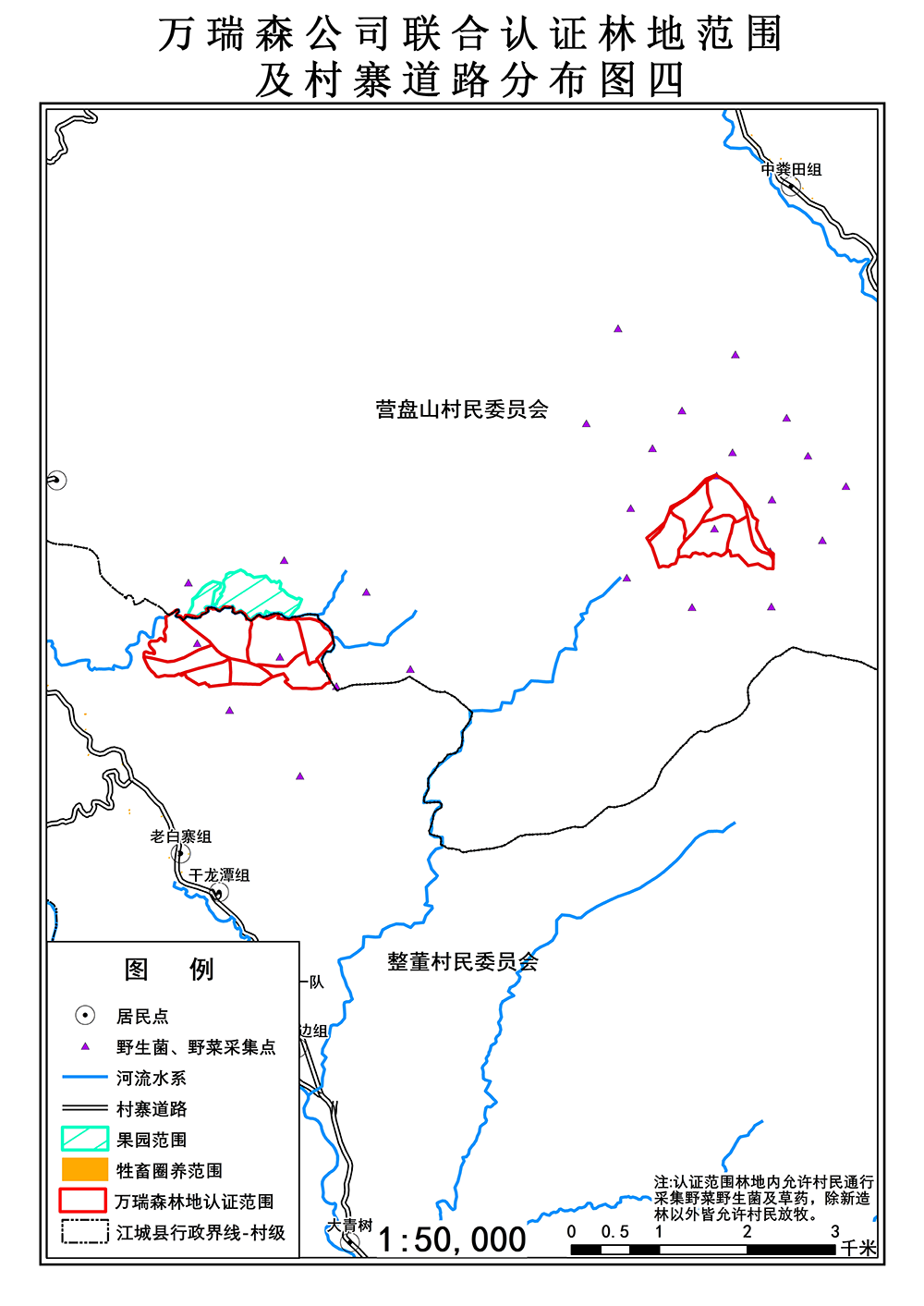Pu'er Ning'er Wanruisen Wood Co., Ltd. jointly certified forest management plan
Author:
Pu'er Ning'er Wanruisen Wood Co., Ltd. Jointly Certified Forest Management Plan (Abstract)
1、 Company Overview and Forest Resource Status
Pu'er Ning'er Wanruisen Wood Co., Ltd. plans to include a forest resource management area of 9685.01 ha and a protected forest land area of 2168.58 ha (an increase of 591.46 ha in 2024) in FSC certification in 2024, with a representative sample area of 1734.86 ha;
| Member | Total certified area (hm2) | Woodland | Among them: area of protected forest land (hm2) | Representative plot area (hm2) | Remarks | |
| Tree forest land | Other forest land (including undeveloped) | |||||
| Linda Line |
6696.72 |
6457.53 |
239.19 |
1275.10 |
1143.4 |
Original |
| Pu'er Ning'er Wanruisen Wood Co., Ltd. (Jiangcheng) |
233.56 |
233.56 |
0 |
0 |
0 |
Original |
| Laoweizhai Group, Yingpanshan Village, Kangping Town, Jiangcheng County |
47.47 |
0 |
47.47 |
0 |
0 |
Original |
| Jiangcheng County Forestry Investment and Development Co., Ltd |
662.86 |
519.86 |
143 |
0 |
0 |
Mewly added |
| Forestry and Grassland Bureau of Jiangcheng Hani and Yi Autonomous County |
1801.71 |
1646.71 |
155 |
591.46 |
591.46 |
Mewly added |
| Yao Haonan |
129.32 |
128.69 |
0.63 |
0 |
0 |
Mewly added |
| Laobaizhai Group, Zhengdong Village, Zhengdong Town |
113.37 |
108.63 |
4.73 |
0 |
0 |
Mewly added |
| Total |
9685.01 |
8815.14 |
869.87 |
1866.56 |
1734.86 |
|
2、 Forest management objectives
Pu'er Ning'er Wanruisen Wood Co., Ltd. plans to ensure zero conversion of forest land use by 2030; The annual increase rate of forest stock volume shall not be less than 2%; Protected forest land shall not be less than 10%; The incidence of pests and diseases is less than 0.3 ‰, and the prevention and control rate is ≥ 95%.
3、 Resource cultivation and tree species selection
Resource cultivation includes tree species selection for afforestation, updating technical measures, young forest nurturing, and thinning during nurturing. Priority should be given to selecting excellent tree species with unified biological characteristics and site conditions for afforestation. The main afforestation tree species are Simao pine, Southwest birch, eucalyptus, alder, etc.
4、 Logging production and planning
The total annual growth of forest stands within the scope of operation of the consortium is 89144.12m3, of which the growth of commercial forests is 73388.7m3 and the growth of ecological public welfare forests is 15755.42m3. The actual production and harvesting volume of the consortium in 2024 is 55763m3, all of which are commercial forest harvesting. The harvesting volume of commercial forests accounts for 76% of the growth volume of commercial forests that year. Ecological public welfare forests have not been harvested, and the actual harvesting volume is less than the growth volume, which can achieve sustainable forest use. The logging and timber making operations are mainly carried out by manpower, using chainsaws as the main tool, and equipped with bending saws, cleavers, etc. The workers are equipped with safety helmets, anti smashing shoes, anti cutting pants, medical supplies and other safety protection equipment.
6、 Forest resource monitoring
It mainly includes the following aspects: (1) monitoring of forest resource status, including non woody resource monitoring. (2) Monitoring the status of wild animals and plants. (3) Forest fire prevention monitoring, forest pest and rodent monitoring. (4) Monitoring of high conservation value forests. (5) Special monitoring of business management. (6) Social impact monitoring and environmental impact monitoring.
7、 Forest management with high conservation value
| High protection type |
HCV4 |
HCV5 |
Total |
| Area (hectares) |
1600.73 |
137.32 |
1738.05 |
High conservation value forests should be mainly protected by closure, and excessive human interference measures should not be applied. Natural forces should be fully utilized to achieve ecosystem protection and restoration.
8、 Conservation Plan for Rare and Endangered Forest Species
Through forest management, production operations, daily patrols by forest rangers, social visits, questionnaire surveys, and other methods, rare species in forest farms are detected. At the same time, strict law enforcement, strengthened coordination with forestry authorities, wildlife system protection projects, increased scientific and technological investment, and publicity efforts are taken to protect them.
9、 Investment estimation and benefit analysis
Investment estimate and funding channels. During the planning period, the company's average annual main business income is 60.1 million yuan, with an average annual cost expenditure of 52.5 million yuan. Among them, the average annual cost of wood production is 37.82 million yuan, and the average annual economic benefit is 2.3824 million yuan.
Attachment (Forest Land Distribution Map)





